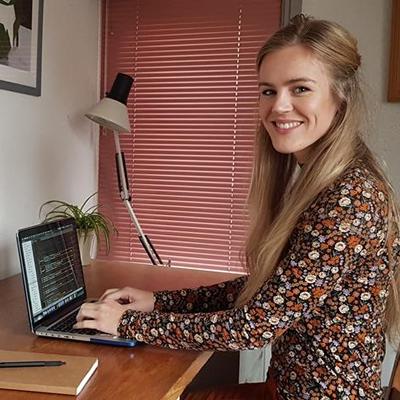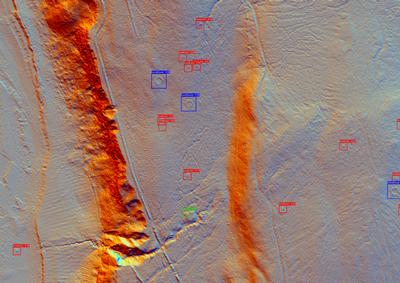Student's Space Archaeology start-up receives new funding from UK Space Agency

A PhD student has received a cash injection from Government to develop her revolutionary software that leverages artificial intelligence to automatically detect archaeological sites for construction planners.
ArchAI, founded by archaeologist-turned-computer scientist Iris Kramer, uses technology developed during her PhD in deep learning at the University of Southampton and her previous degree in archaeology.
This project will use AI to automatically detect archaeology on Earth observation data. Knowing where archaeology is located at the earliest planning stages will allow accurate estimates of time and cost involved with acquiring planning permission and significantly reduce the risk of discovering unexpected archaeology during construction. This means that ArchAI will lower the cost of construction and ensure that vital historical sites are preserved.
Iris said, “By using our technology over conventional techniques, developers could save tens of thousands in costs, as well as months of time that would be spent surveying land pre-development. Going forward there are wide ranging environmental challenges globally that our world-first technology can address.”
ArchAI is one of five space projects receiving UK Space Agency funding through the national Space Research and Innovation Network for Technology (SPRINT).
Space archaeology uses satellites or high-flying aircraft to take pictures remotely of the Earth’s surface to find hints of ancient features buried under the ground. Things may show up visually or near infrared may show small differences in vegetation, with growth on top of buried stone likely to be less healthy.
Dr Fraser Sturt, a professor of archaeology at the University of Southampton, said: "Aerial photography transformed archaeology in the early 20th century, revealing sites in a way that few people could have conceived of in the past. Advances in Earth Observation and Machine learning offer another leap forward, helping us to identify and monitor sites across of space and time.
"This information is critical not only for our understanding of the past, but how we manage the built environment and its development in the future."
This is the latest success in a pivotal year for Iris; ArchAI has been selected to exhibit at the prestigious CES show this month and in October she received an investment of £70,000 in a Dragons' Den event, organised by the University's on-campus startup accelerator, Future Worlds.
